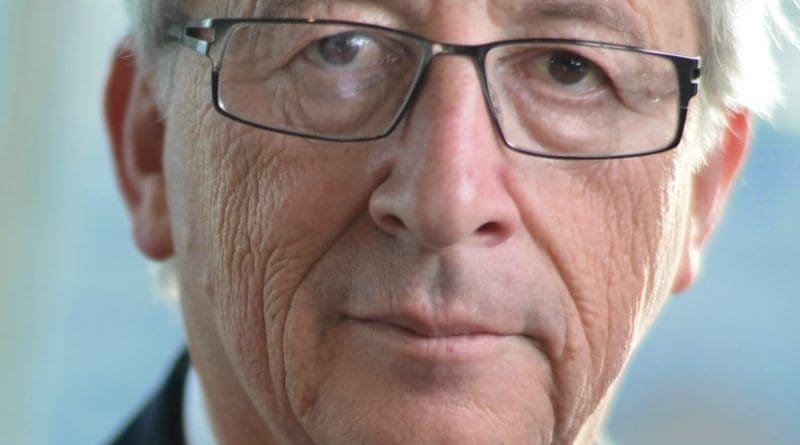Juncker, Timmermans Warn Against Romania’s ‘Backtracking’
By EurActiv
By Georgi Gotev
(EurActiv) — European Commission President Jean-Claude Juncker and First Vice-President Frans Timmermans issued a stern warning Wednesday after the Romanian government issued an emergency decree reducing penalties for corruption, allowing several politicians to avoid criminal prosecution.
“The fight against corruption needs to be advanced, not undone. We are following the latest developments in Romania with great concern,” Juncker and Timmermans wrote in a joint statement.
Juncker represents the centre-right European People’s Party (EPP) while Timmermans is the most senior socialist official in the European Commission. The fact that both signed the statement obviously means that Romania’s Partidul Social Democrat government (PSD) has no backing in the EU executive. Another Commission Vice-President, Maroš Šefčovič, also a socialist, read the statement to the Brussels press.
“The Commission warns against backtracking and will look thoroughly at the emergency ordinance on the Criminal Code and the Law on Pardons in this light,” the statement reads.
“The issue was debated in the college,” Šefčovič said. Concern was expressed by various Commissioners who intervened, he added.
Thousands of Romanians took to the streets yesterday, chanting “thieves” and calling for the resignation of the PSD government, which has been in power for less than a month.
“The irreversibility of the progress achieved in the fight against corruption is essential for the Commission to assess whether at some point monitoring under the Cooperation and Verification Mechanism (CVM) could be phased out,” the Commission statement also says.
“Our CVM Report, published last week, appears as generally positive. But it also highlights a number of deficiencies Bucharest has still yet to address,” the Commissioners state, adding that the EU’s monitoring of Romania will remain in place.
The CVM report makes it clear that any steps which undermine this progress, or have the effect of weakening or shrinking the scope of corruption as an offence, would have an impact on any future assessments.

